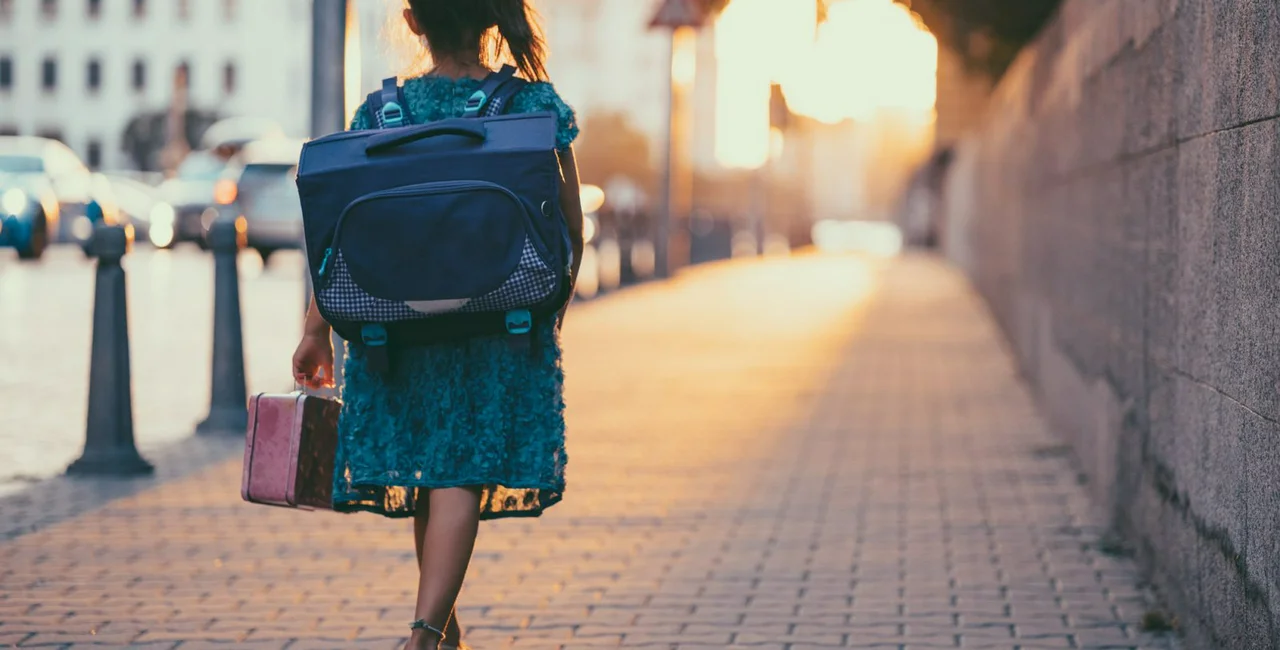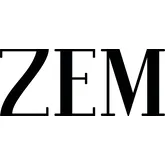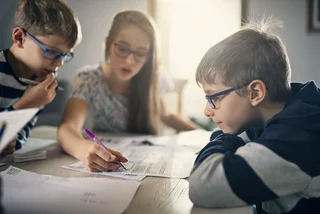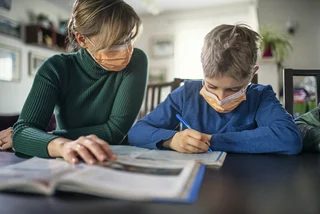Czech state-run schools closed on March 11 due to the spread of the coronavirus pandemic which has, to date, seen a decline in the Czech Republic followed by a gradual loosening of safety restrictions. A number of educational institutions have slowly begun opening their doors to students while this Monday marks an official return to the classroom for many schools.
But parents who’ve decided to send their children back to school — doing so is not compulsory — have expressed lingering doubts over how strictly hygiene standards can be enforced among smaller children, or the level and consistency of instruction in larger schools where classes will be split into groups to make social distancing possible (you can see a list of safety regulations for schools here, in Czech).
We rounded up some of the more pressing questions from local parents and took them to the Czech Ministry of Education, Youth, and Sports, whose spokesperson Aneta Lednová addressed parents on the eve of sending their kids back to school after a lengthy period of quarantine (responses edited for length and clarity):
How are teachers and staff being prepared and supported during the re-opening period?
The Ministry of Education has issued a manual for each level of school — a set of hygiene and safety instructions for schools. These detailed guidelines have been distributed to all schools and are available on the Ministry of Education’s website. [During the making of these manuals] we consulted with school principals, school associations, etc. The primary [condition] for us was their feasibility in relation to the [distinctiveness] among Czech schools.
Why aren’t teachers allowed to take students outside and how did the powers that be arrive at the number of 15 students per class?
These regulations are not decided by the Ministry of Education, but by an epidemiological team headed by the Ministry of Health. In an environment outside school, general measures apply, for example veils, spacing, and an effort to minimize contact with people outside the school group. For example, many kindergartens have their own garden, but if there is a forest near the school, for example, teachers and pupils can visit it.
What’s the plan to ensure an equal education for all children as children are split into groups?
[As of] May 25, primary school pupils can return to schools voluntarily, classical teaching is not expected here, but teaching will continue in a similar way [to] home education. The only difference is that the children will not be supervised by their parents, but by pedagogical staff. Thus, distance education still remains the main form of teaching.
What has definitely improved is the communication between the family and the student or the sharing of information between teachers, these are things that we should maintain and strengthen in the future as part of regular teaching – Czech Ministry of Education spokesperson
How will teachers account for the different levels of involvement during quarantine (for example, parents who were able to help with distance learning vs. parents who were not)?
The Ministry of Education called on schools not to overburden pupils and their families and to focus mainly on core subjects in their teaching. The Ministry recommend[ed] taking into account the family situation of pupils and focusing on formative, motivational evaluation.
The Ministry has also set up a web portal nadalku.msmt.cz, where there are a number of recommendations, for example for socio-economically disadvantaged pupils and students, basic advice for teachers and socially disadvantaged children on how to implement their education in the current state of emergency.
In general, if the teacher has doubts about whether the student is involved in distance learning activities, or the student does not submit assignments or does not respond to communication, the teacher needs to connect with the student or his parents and find out the reasons that prevent the pupil from distance learning, and together with his parents look for tools to help support him in distance learning.
How will grading of the work done at home be managed?
The Ministry of Education has issued a decree and related methodological instruction, which allows schools to take into account both the academic performance until March 11 and the work of pupils and students in distance education and after their return from May 25. We recommend evaluating students primarily formatively, with feedback. Teachers should take into consideration the conditions that the pupil had at home during distance learning, as these can be much more difficult than in regular school teaching.
What about the children who are not returning? Will teachers still need to send them work they are doing in the classroom?
For pupils who stay at home, the school will continue to provide distance learning.
Is there a plan in place for the second wave? Or will the workload all be left up to each individual teacher again?
This is a premature question for now. Almost immediately after the beginning of the crisis, the Ministry came up with its specialized website nadalku.msmt.cz. Teachers can find resources, inspiration and tips on how to deal with distance learning here. We expect the site to continue to expand and to be available to teachers at any time in the future. We have also prepared a number of webinars on this topic for them.
How did the Czech Republic perform in terms of managing remote learning versus other countries?
The Czech Republic proceeded to resolve the pandemic situation very quickly. At the beginning of April, the Czech School Inspectorate contacted all schools with controlled telephone calls to find out how they managed to participate in distance education and what their problems are. Insufficient security with hardware has proven to be a major problem in some cases.
Based on the results of this survey, the Ministry of Education decided to connect with the Ucimeonline.cz platform and help schools, which were identified as necessary on the basis of the survey, and of which there are about a thousand.
These are both shortcomings in technical equipment and the use of communication platforms, but last but not least, the support of teachers in terms of leading online teaching. Support will be provided free of charge to schools.
For younger children, how can parents best prepare them for going back to school after a long period out of the classroom?
Even in distance learning, most children were in daily contact with their teacher and classmates. Returning to school in itself is not such a change. It is important to tell the children what hygiene measures they will expect at school, explain to them how important they are and motivate them to follow them.
What are the safety precautions you should explain to children in advance?
These include, for example, the rules for washing hands, moving in corridors or keeping a safe distance from other classmates. The Ministry of Health, in cooperation with the State Institute of Public Health, prepared a number of educational materials for children, such as a comic book, which not only teachers but also parents could explain to children what happened in the last two months and what are the risks and especially prevention.
What is the state doing to help non-Czech fluent parents and children with education?
There is really a lot of it. For example, we can name a joint project of the Ministry of Education and Czech Television — the television show UčíTelka. Due to the situation and the deployment of a team of skilled teachers, the team of the Ministry of Education, Youth and Sports and the entire CT staff, the original idea of the Minister of Education was implemented within five days and began to be broadcast live. Every day, on the ČT2 program, primary school pupils are taught through a television screen.
In addition to teaching on television, the Ministry of Education offers primary schools a lot of support for distance learning, for the assessment of distance students and for schools that are not in the field of using technologies for education (not only distance) also support “how to” in the form of webinars and applications. Tips, resources and inspiration for distance learning are also offered by the regular Special for the Support of Distance Learning, published by the National Pedagogical Institute.
If a child misses school after May 25, are they forbidden from returning?
A pupil cannot be included in a school group later than May 25, 2020. However, if she has already been included in the group, she may return. Participation in educational activities is optional. However, if a pupil is registered for personal participation in educational activities, in the event of her absence, the pupil’s legal representative should inform the school that the pupil will no longer continue to participate in educational activities. If the pupil returns to the group in which she was placed from the beginning after her absence, the required invariability of the group is still observed and this is therefore possible.
How will this crisis impact the future approach to education in this country? What lessons have been learned?
The digitization of education and the potential for remote learning are great topics that the current situation has opened up. We are pleased that many schools and teachers, who learned it as they went along, have mastered this way of teaching. The dark side of Czech education is certainly the overcrowding of educational programs. However, we have known about this problem for some time and will address it as part of the revision of the framework of educational programs.
What has definitely improved is the communication between the family and the student or the sharing of information between teachers, these are things that we should maintain and strengthen in the future as part of regular teaching. In connection with the current situation in the future, we also focused on supporting the formative (verbal) assessment of pupils, which is approached by more and more schools.
Do you have additional questions or concerns about sending your child back to school? Share them in the comments below.












 Reading time: 7 minutes
Reading time: 7 minutes 































